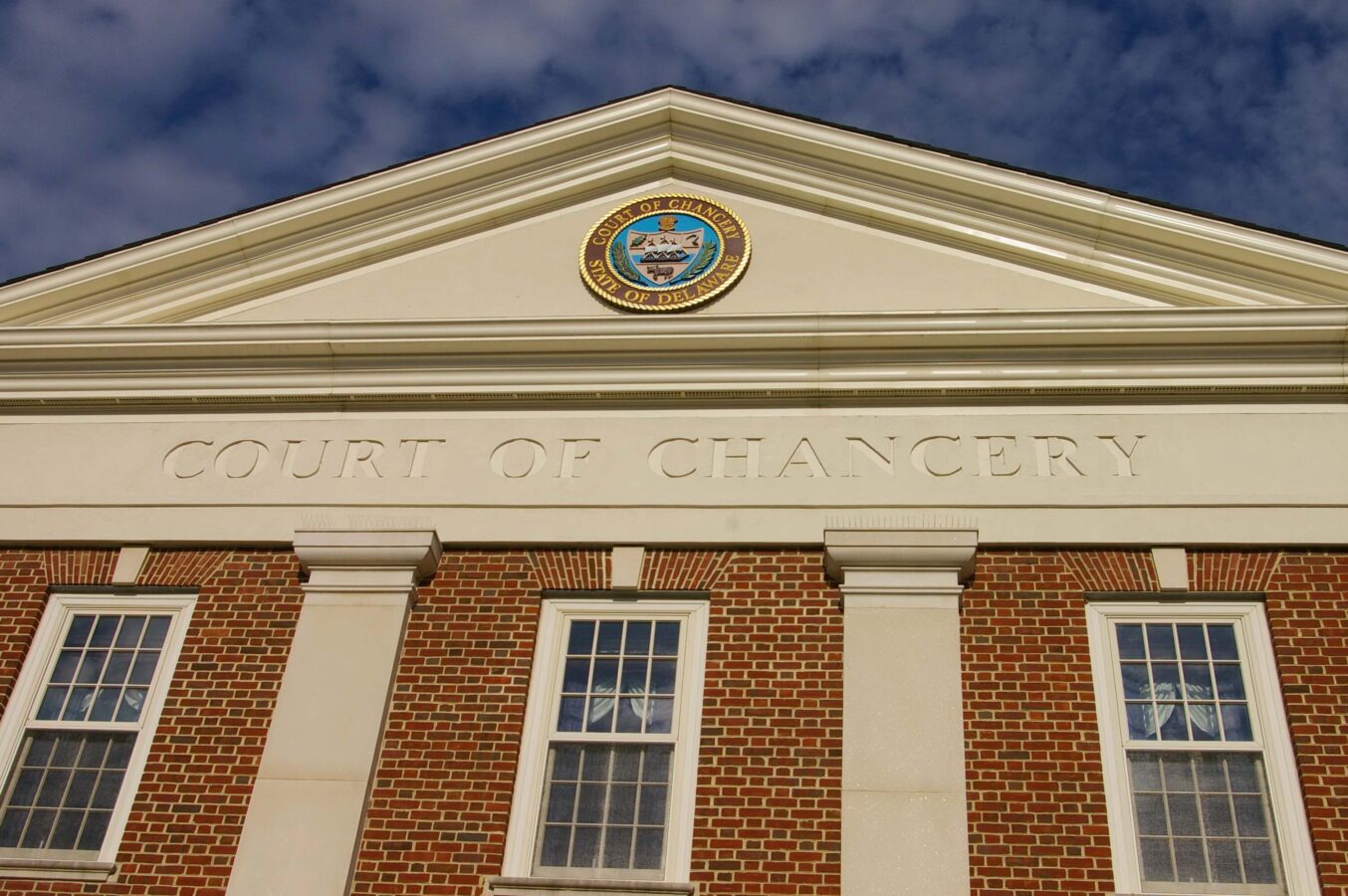The Essence of Justice: Exploring the Court of Chancery
Chancery courts are special courts that handle particular types of civil cases that involve equitable relief rather than monetary damages. They focus on fairness and crafting remedies tailored to the circumstances, applying principles of equity.
Origins and History
The concept originated in 14th century England. The early English chancery courts aimed to provide remedies in situations where the strict common law courts failed to deliver justice. They were able to craft solutions such as injunctions and specific performance instead of only awarding monetary compensation.
Chancery courts derived their authority from the English monarchs originally, who had a Lord Chancellor overseeing a Court of Chancery. Some American colonies also established local chancery courts modeled on this system.
After the American Revolution, many states opted to fuse law and equity jurisdictions in their court systems. But some like Delaware chose to preserve the distinction and maintain separate chancery courts. These courts endure today as guardians of equity principles in the United States legal system.
Difference from Law Courts
There are a few key differences that set chancery courts apart:
- Judge vs Jury – Chancery cases do not involve juries and are decided solely by the chancellor or vice chancellor judge.
- Equitable Relief – The remedies awarded focus on fairness, not just monetary damages. This can include injunctions, specific performance, rescission, trusts, etc.
- Rules and Procedures – Chancery courts have developed their own distinct rules and processes with less rigid pleading requirements, looser adherence to precedent, and wider evidence allowance.
So in essence, chancery courts offer a more flexible approach that aims to achieve justice in individual cases where Strict application of common law would be deficient. The emphasis is on ethical solutions rather than just awarding a dollar amount.
Equity Jurisdiction
Chancery courts hold jurisdiction over civil cases requesting equitable relief. Some examples of matters they preside over include:
- Trust, Will, and Estate Disputes
- Requests for Injunctions and Restraining Orders
- Specific Performance of Contracts
- Rescission of Contracts
- Imposition of Constructive Trusts
- Interpretation of Legal Documents
- Guardianship Hearings
- Corporate Litigation and Takeover Disputes
- Dissolution of Partnerships
- Establishment of Charities
A key element is that monetary damages alone would provide an inadequate remedy in these scenarios. Effective relief requires crafting unique solutions case-by-case in the interests of equity and good conscience.
For instance, awarding damages for breach of contract has shortcomings if one party truly desired performance. An injunction compelling the breaching party to fulfill the terms specifically is more appropriate. Chancery courts have the flexibility to order such tailored remedies.
Principles of Equity
There are several time-honored maxims that chancellors apply as guiding principles in weighing cases before them:
- Equity Will Not Suffer a Wrong Without a Remedy – Where no adequate solution exists at law, equity will provide relief.
- Equity Follows the Law – Chancery courts may not ignore the law but will try fulfilling its aim.
- Equity Acts in Personam – Equitable remedies compel a person to act (or refrain from acting) without directly changing legal rights.
- Equality is Equity – Similar cases should have similar outcomes to avoid arbitrary decisions.
These ancient axioms grant chancellors discretion in crafting fair solutions for individual cases – the hallmark duty of chancery courts.
Structure of Chancery Courts
While the specifics vary by state, chancery courts have a few common attributes in their structure and governance:
Judges
- Typically consist of a single chancellor plus a number of vice chancellors
- Require highly knowledgeable and experienced judges well-versed in principles of equity
Rules and Procedures
- Retain more flexible rules than common law courts regarding pleading, evidence, hearings, etc.
- Have their own Court of Chancery Rules regulating practice and procedure
- Permit wider discovery and rely heavily on testimony via depositions
Maintaining separate protocols allows chancery courts to operate distinctly as a forum administering equity and fashioning relief suitable to each dispute’s circumstances.
Famous Chancery Courts
Two chancery courts stand out historically in shaping how these institutions dispense equitable justice:
Delaware Court of Chancery
Delaware’s chancery court remains renowned in the legal realm for decisiveness in resolving high-profile business disputes. Several well-known Delaware Chancellors like William T. Quillen, William T. Allen, and Leo E. Strine, Jr. have spearheaded the court’s modern prominence.
The court’s role in massive corporate cases related to mergers and acquisitions has brought it much attention. It grips corporations chartered in Delaware by adjudicating related litigation and interpreting fiduciary duties of directors and officers.
Yet despite fame for expertise on corporate matters, Delaware’s Chancery Court still functions as a traditional equity court in trust, estate, and other suits seeking injunctions or specific performance.
Historical English Court of Chancery
England’s medieval Court of Chancery holds significance as the progenitor of chancery courts around the globe. The early Lord Chancellors originally derived authority from the King and became known for providing commoners remedies when regular courts offered none.
By the height of its influence in the 15th-16th century, people petitioned the Court of Chancery directly via “bills” registering grievances requesting equitable relief when no other recourse was available. The court introduced devices like the trust and injunction into the legal system during this era.
Later, it declined along with the rest of England’s equity courts. But Delaware’s chancery court and others carried on the early English model and equitable principles into modern times.
Chancery Courts in the Modern Legal System
Currently less than half of U.S. states maintain separate courts of chancery from courts of law. They endure most commonly where they have existed historically, like in Delaware.
States With Chancery Courts
Alongside Delaware, a few other states still incorporate equity courts as distinct entities in their judicial frameworks:
- Mississippi
- Tennessee
- New Jersey
Some states allow certain courts to exercise chancery powers without designating a single chancery court. And Louisiana draws on civil law traditions for equity relief.
Criticisms and Controversies
In the present day, chancery courts do have their detractors who raise issue with perceived drawbacks like:
- Judicial Overreach – Flexible equitable remedies arguably allow excessive judicial discretion compared to common law courts. Critics contend chancery decisions can undermine precedent.
- Lack of Predictability – The case-by-case balancing approach focusing on fact patterns makes the system less predictable than stricter courts bound tightly to statutes.
- Privileging Business – Concentration on corporate litigation opens criticism that chancery courts unfairly favor business entities over individuals seeking equitable relief.
- Procedural Complexity – The different rules and processes maintained by chancery courts add further intricacy to an already complex legal framework.
These complaints keep discussions ongoing about reforming chancery courts to mitigate perceived downsides.
Benefits of Chancery Courts
However, chancery courts in the modern landscape also confer meaningful advantages just as they aimed to historically:
Flexibility and Fairness
- Enable addressing novel situations where the common law falls short – critical in our ever-evolving world.
- Prioritize ethical solutions over rigid adherence to formulated rules unfit for the circumstances.
- Allow shaping relief and remedies tailored to the case rather than limited to monetary awards.
Business Litigation
- Provide a specialized forum for corporate disputes given Delaware’s stature in incorporation.
- Resolve high-stakes business conflicts efficiently with sophisticated legal reasoning.
- Offer a learned bench experienced in complex commercial matters unseen centuries ago.
These factors demonstrate why chancery courts retaining equity jurisdiction still have value despite criticisms in the current era.
The Future of Chancery Courts
As chancery courts progress into the future, debate continues on whether preserving equity jurisdiction remains beneficial or warrants reform:
Calls for Reform
- Increase legal consistency and predictability by restricting equitable flexibility with stricter guidelines.
- Reduce perceived favoritism towards corporate litigants by shifting focus to individuals.
- Simplify court structure by complete merger with general jurisdiction courts.
Addressing Criticisms
- Maintain equitable flexibility but implement transparency practices to avoid overreach perceptions.
- Balance business cases with more individual disputes requesting special remedies only chancery may grant.
- Retain distinct identity and processes but streamline interactions with other court systems through coordination reforms.
Balancing these positions will shape the fate of chancery courts.
Conclusion
In conclusion, chancery courts play a unique role grounded in principles of equity and conscience rather than strict law. They offer singular remedies in select cases while aiming to uphold fairness and justice so the system works for litigants.
Delaware sets the modern standard in keeping this equitable jurisdiction alive. Adaptability to contemporary conditions while retaining core tenets may determine the ongoing survival of chancery courts where they remain.
The challenges they face inspire debate on legal philosophy – should equitable discretion temper rigid rules or bow completely to consistency and predictability? The ultimate answer depends on how American society weighs the merits of flexibility versus formalism as chancery courts progress.
Frequently Asked Questions
What is the difference between a chancery court and a regular court?
A common Question ask is “what is a court of chancery”, Chancery courts focus on providing equitable relief rather than monetary awards. They have flexible rules and do not use juries, aiming to craft fair solutions case-by-case based on ethical principles. Regular courts strictly apply common law with less discretion, using precedents and statutes.
What kinds of cases do chancery courts handle?
Trusts, wills, estate disputes, specific performance of contracts, injunctions, interpretation of legal documents, corporate litigation, and other civil complaints requesting remedies like rescission when damages themselves would be inadequate.
Do all states have chancery courts?
No, currently only Delaware, Mississippi, Tennessee, and New Jersey maintain courts specifically named as chancery courts. Some other states allow certain courts to exercise equity jurisdiction without designating a single chancery court.
Why are modern chancery courts controversial?
Critics contend they hold too much flexible discretion in crafting remedies, lack predictability compared to stricter courts, excessively favor corporate litigants, and add unnecessary procedural complexity to the legal system.
How might chancery courts need to evolve moving forward?
Those wishing to preserve chancery courts may need to implement transparency measures to avoid perceptions of overreach, take more individual cases, better coordinate complex interactions with other courts, and restrict the flexible equitable approach somewhat.







